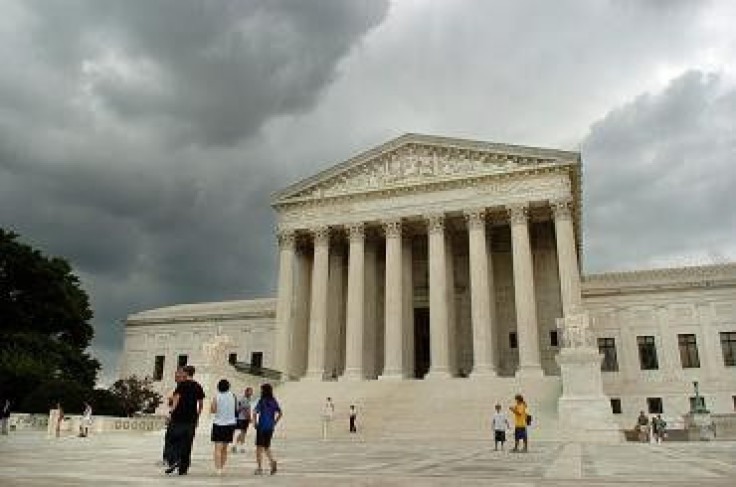U.S. Supreme Court Halts Duane Buck's Texas Execution

The U.S. Supreme Court halted the execution of Duane Buck, a black man convicted of double murder in Texas 16 years ago, after his lawyers argued the sentence was unfair because the prosecution had alleged his race would make him more susceptible to future violent behavior.
Buck, 48, was spared from lethal injection on Thursday only hours before he was scheduled to be put to death after the nation's highest court said it would review an appeal in his case.
Two appeals, both relating to a psychologist's testimony during Buck's trial that said black people were more likely to commit violent crimes, went before the Supreme Court, according to The Associated Press. One was granted while the other was denied.
Buck was praying in his cell when his lawyers called to tell him of the reprieve, Jason Clark, a spokesman for the Texas Department of Criminal Justice, told the AP.
God is worthy to be praised. God's mercy triumphs over judgment. I feel good, Buck said, according to Clark.
A similar request for a stay of execution was made to Texas Gov. Rick Perry. However, Perry was not in the state on Thursday, according to the source, which said any reprieve from the governor's office would have fallen to Lt. Gov. David Dewhurst.
Buck's lawyers had previously asked Perry and the district attorney in the case to grant their client a new trial, as the state had previously done for other defendant's whose trials were tainted by prejudicial racial testimony. The Texas Board of Pardons and Paroles, all of whom were appointed by Perry, denied Buck's clemency request on Wednesday, while the 5th U.S. Circuit Court of Appeals subsequently rejected his appeal.
According to CBS Radio News senior legal analyst Andrew Cohen, the Supreme Court's move is an unusual one since it rarely intervenes in death penalty cases where the guilt of the defendant is not in doubt.
However, Buck's legal turmoil is far from over. Although the Supreme Court called for a stay in execution it has not yet given the inmate a new sentencing trial.
Buck was convicted of shooting and killing his ex-girlfriend, Debra Gardner and her companion Kenneth Butler outside Houston in 1995. Although Buck's guilt has not been questioned, his lawyers argue the jury was unfairly influenced by the psychologist's racially based testimony, causing them to recommend a sentence of capital punishment instead of life in prison.
No one should be put to death based on the color of his or her skin. We are confident that the court will agree that our client is entitled to a fair sentencing hearing that is untainted by considerations of his race, Kate Black, one of Buck's attorneys, said in a statement.
The state of Texas has executed 235 inmates since Perry became governor in 2000. On Tuesday, Steven Woods was put to death for his supposed involvement in the slayings of two people in Texas in 2002. Although his alleged accomplice, Marcus Rhodes, confessed to both of the murders while in prison, he was spared the death penalty and is serving a life sentence.
Two more Texas prisoners are scheduled to die next week.
© Copyright IBTimes 2024. All rights reserved.











